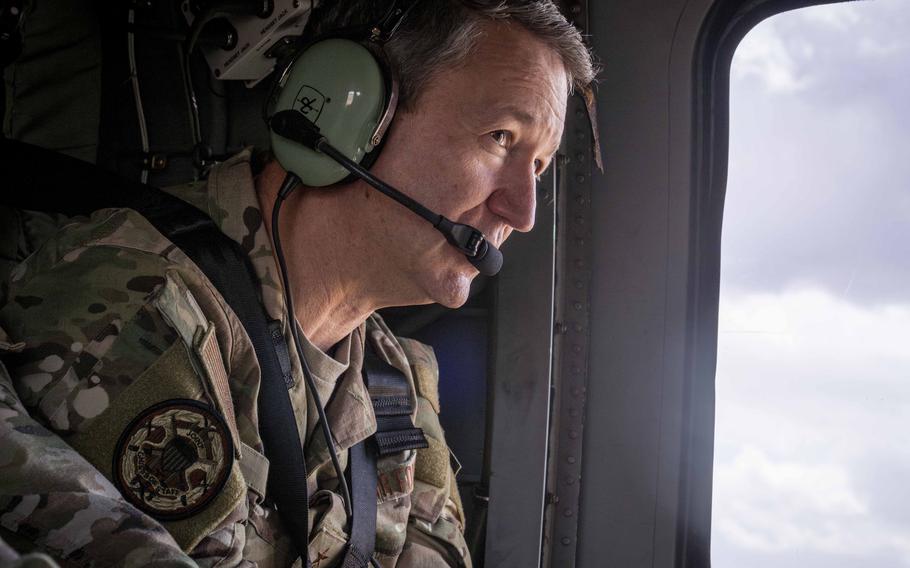
Chairman of the Joint Chiefs of Staff Gen. Dan Caine visits Joint Task Force Southern Border in Sierra Vista, Ariz., April 19, 2025. He is in Brussels this week for his first visit to NATO in the new role. (James Mullen/U.S. Navy)
STUTTGART, Germany — The top U.S. general is making his debut this week at NATO headquarters in Brussels, where defense chiefs are preparing for a leader summit in June that is expected to focus on deterrence and spending.
Gen. Dan Caine, the new chairman of the Joint Chiefs of Staff, was deliberating Wednesday with top U.S. and European commanders on plans for bolstering the alliance.
The meeting of allied generals and admirals coincides with a separate gathering the same day in Turkey, where U.S. Secretary of State Marco Rubio is meeting with NATO foreign ministers for two days of talks.
“We encourage all to do more, investing in capabilities that will allow us to face current threats and be fully prepared for the future,” Italian Adm. Giuseppe Cavo Dragone, chairman of NATO’s military committee, said as talks got underway.
The meetings in Belgium and Turkey are two of the final high-level conferences before a NATO summit in late June in the Netherlands, where President Donald Trump will be in attendance.
The high-stakes summit in The Hague is expected to put pressure on European and Canadian allies to boost their defense spending.
NATO countries also are looking for more information about the Trump administration’s plans for the U.S. military presence in Europe. Allies are anticipating possible American troop level reductions.
Regarding defense spending, Trump wants countries to boost investments in their respective militaries to 5% of gross domestic product rather than the current 2% benchmark.
NATO Secretary General Mark Rutte was asked last week about a possible plan that could call for allies to dedicate 3.5% of GDP to defense and 1.5% to military-related infrastructure. Such a formula could be a way to meet Trump’s demand.
Speaking Friday during a news conference, Rutte declined to confirm those numbers but said internal discussions related to elevating spending requirements are taking place.
“I’ve always said this: If we stick at the 2%, we cannot defend ourselves,” Rutte said. “So we have to really increase defense spending.”
In Brussels on Wednesday, Dragone made the same argument.
“Preparing for war is our vaccine for maintaining peace,” he said.